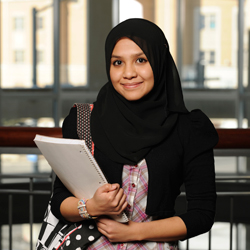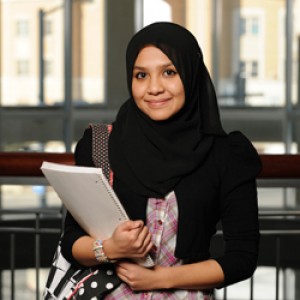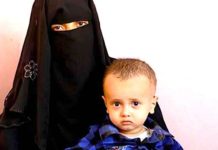Dubai, UAE, December 2014 – ‘The Bayt.com Status of Working Women in the Middle East’ survey, recently conducted by Bayt.com, the Middle East’s leading career site, and YouGov, a research and consulting organization, has revealed that 51% of women in the region consider recruitment and selection opportunities to be made regardless of gender. According to the survey, only 31% believe that women are treated less favourably in terms of salary.
Women in the MENA region mostly seem to seek employment in order to be more financially independent (48%) and in order to support or financially contribute to their household (46%). For 45% of respondents, taking a job is a means to broaden their perspectives on life, the survey reveals.
Almost three quarters (72%) of MENA respondents stated that they were employed in a mixed gender workplace, while nearly a quarter of them (22%) were relatively new to their current industry, having spent 1-2 years in it.
51% of MENA women consider employment opportunities to be equal, according to a new survey by Bayt.com and YouGov.
49% believe women and men are treated equally in the workplace.
Gender Equality
Two in five women who work in a mixed gender workplace felt ‘extremely’ comfortable working in mixed-gender environments, with 31% responded that they were comfortable ‘to some extent’. However, women working in a mixed gender environment around the MENA region mostly reported to a male manager (77%), and had more men colleagues (58%) than women. Two thirds (66%) of them claimed to have no preference regarding the gender of their manager.
Salary and Promotions
The majority of women in the MENA region fell into the US$200-2,000 income per month range (60%), 21% of whom earned between US$200-500 per month. There is a regional sentiment that men receive more pay than women (43%).
However, nearly half (49%) of the respondents working in mixed gender environments around the region believed that their chances of being promoted depended entirely on their performance, and not on gender. Though, 34% of them still believed that women had a lower chance of promotions than men do.
A significant number of women around the region (45%) believe that working women in their country had, to some extent, reached the same level of workplace equality as the women in the West.
Work, Marriage and Children
When asked how their career choices have affected their marital life, 35% of married respondents in the MENA region stated it had had no effect at all, versus 33% who claimed it had had a positive effect.
Future marriage plans were seen by 35% of MENA women to have an effect to some extent on career choices, though nearly 30% state they have no effects at all.
Labour Laws
Across MENA, 43% of women claimed to be very familiar with labour laws, with 48% stating they are ‘slightly familiar’ with them. Amongst those who were familiar, 53% said they were fair to some extent, while 21% believed they were fair to a large extent.
A majority (87%) of women participating in this survey worked 30 or more hours per week. More than half (53%) were single; whereas, 27% of them were married with children. 49% of these women stated that the main contribution to their household comes from a man.
“There are clearly mixed sentiments across the MENA region with regards to women’s opinions of equality in the workplace”, says Suha Mardelli Haroun, HR Directorat Bayt.com, “Women feel treated equally competent to men across many skill-sets and continues to be narrowing quickly.”
“Employers should take advantage of this skill level to enlarge the talent pool, and perhaps take it as an opportunity to recalibrate on elements such as salary, benefits and advancement opportunities”, he asserts.
“It is encouraging to see that many women in the MENA region believe their country of residence provides the same level of gender equality as many Western countries,” says Emilene Parry, a senior research executive at YouGov.
Data for the survey was collected online from October 22-November 20 2014, with 1,543 female respondents aged 18 and above. Respondents were from the UAE, KSA, Kuwait, Oman, Qatar, Bahrain, Lebanon, Syria, Jordan, Egypt, Morocco, Algeria, and Tunisia.











